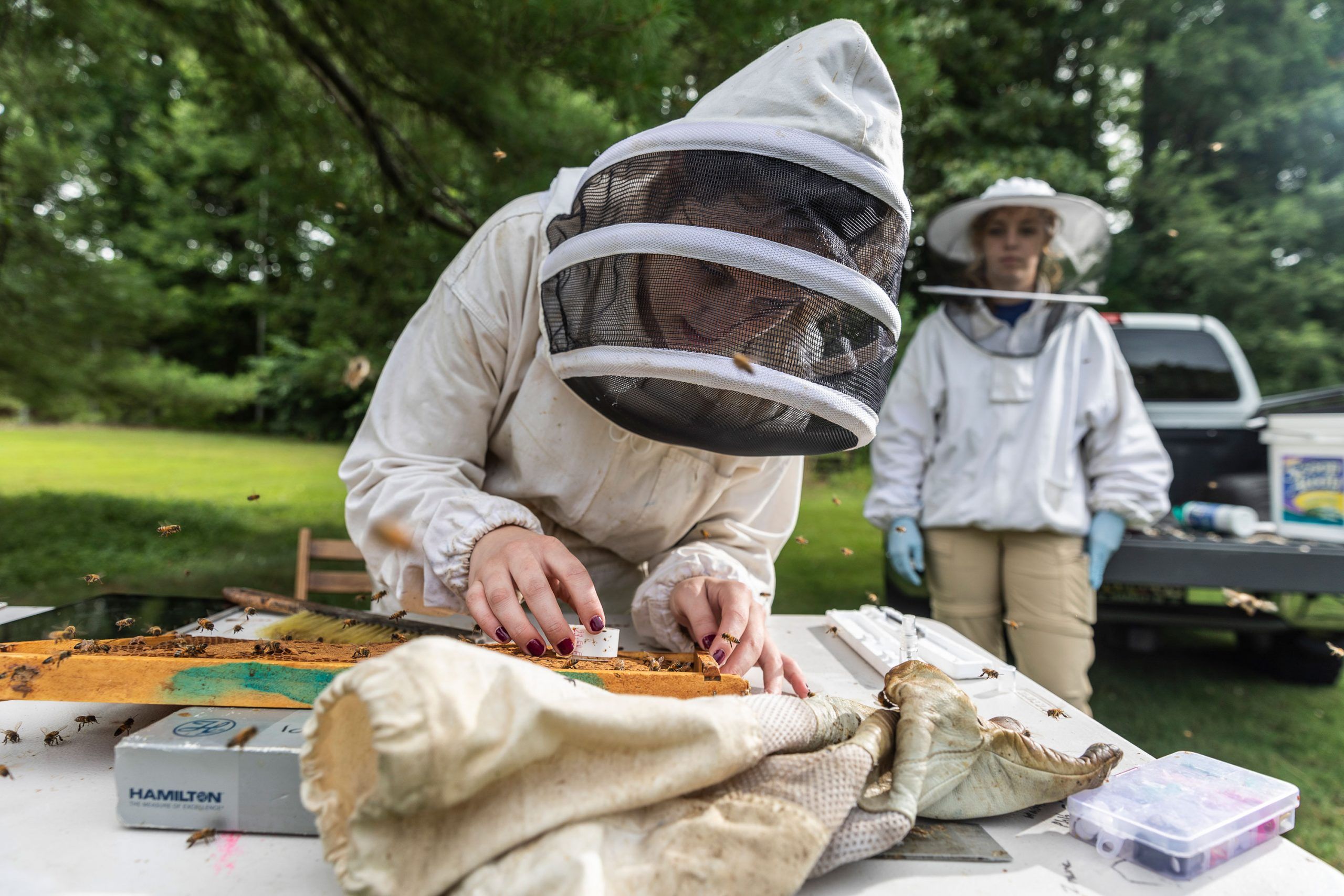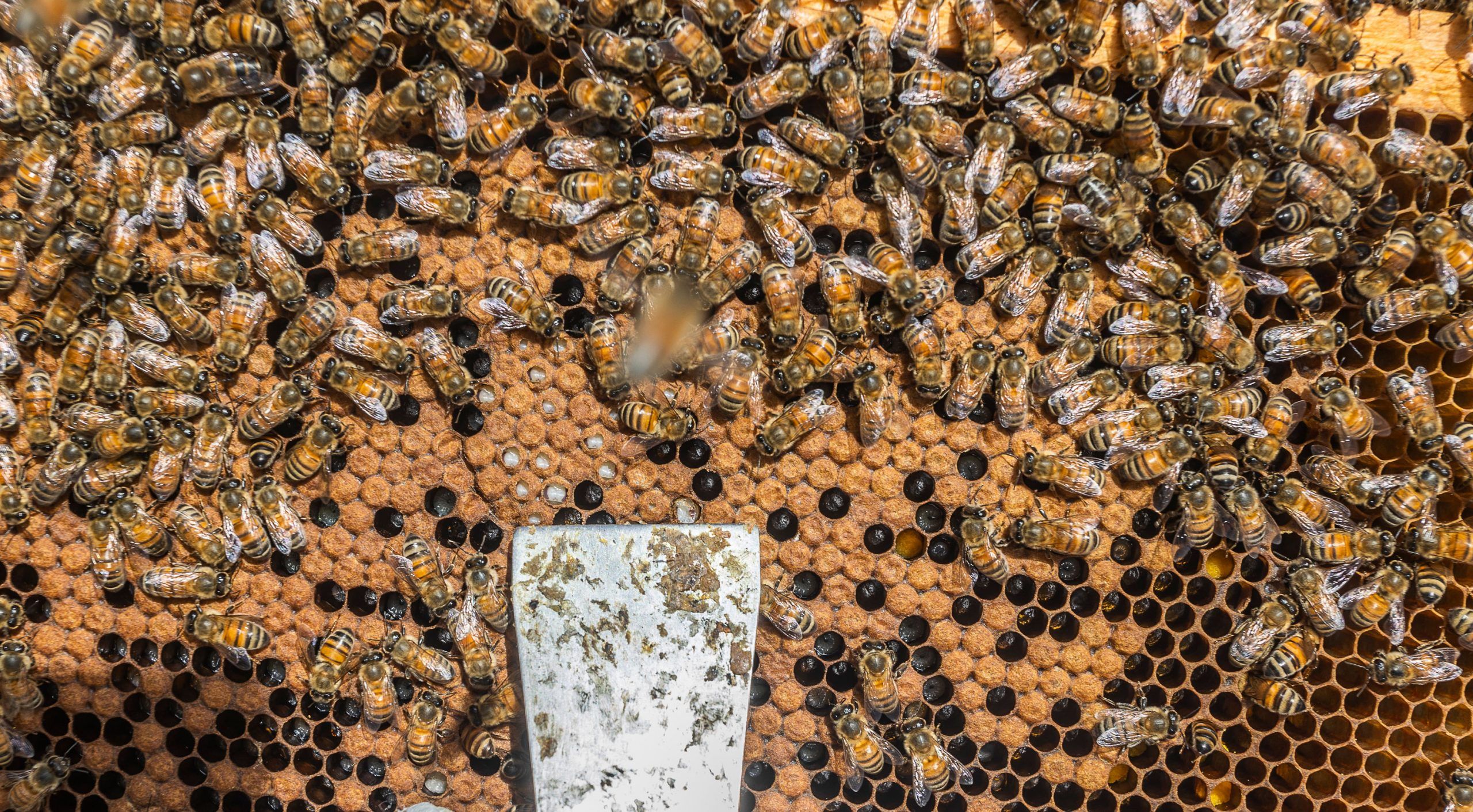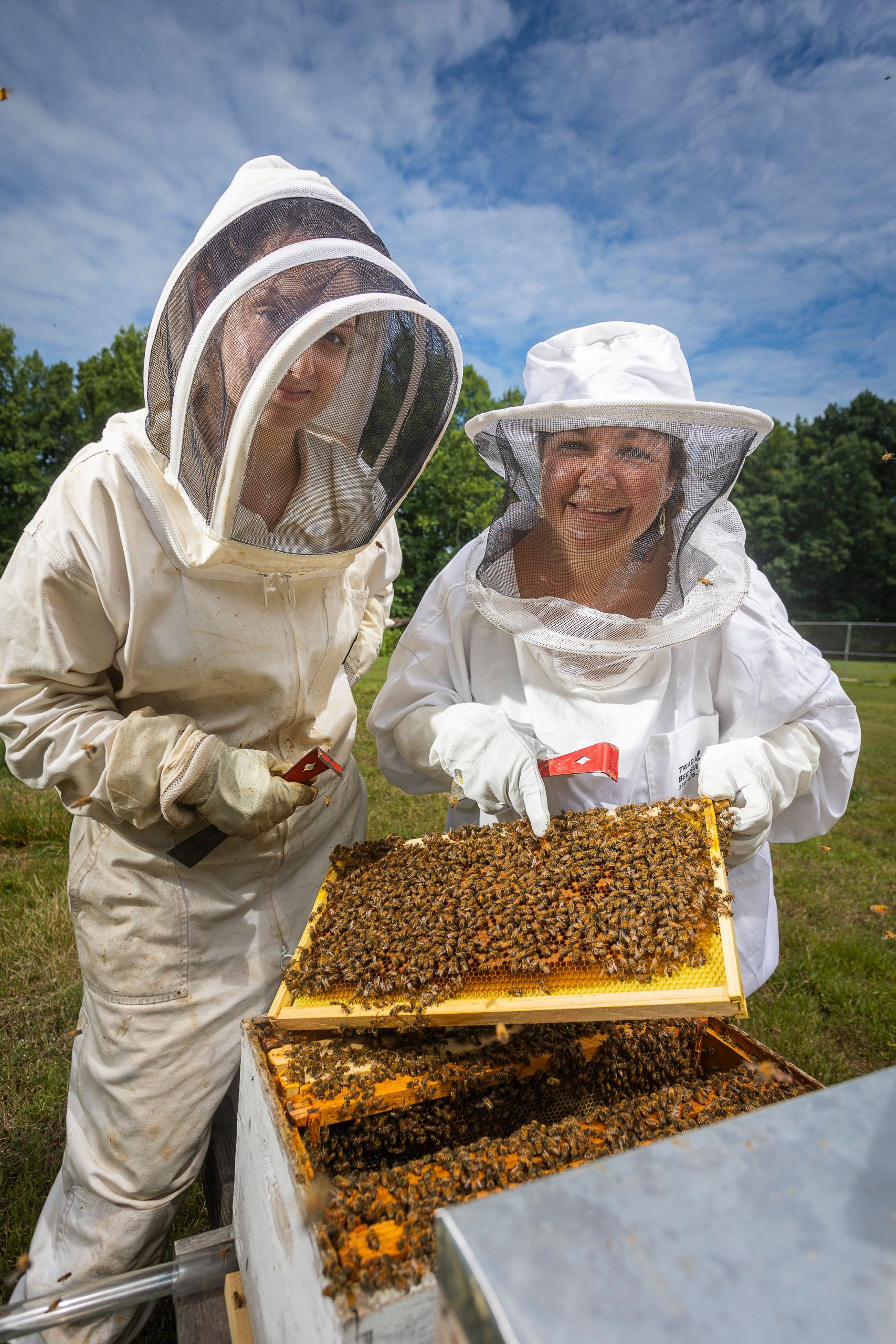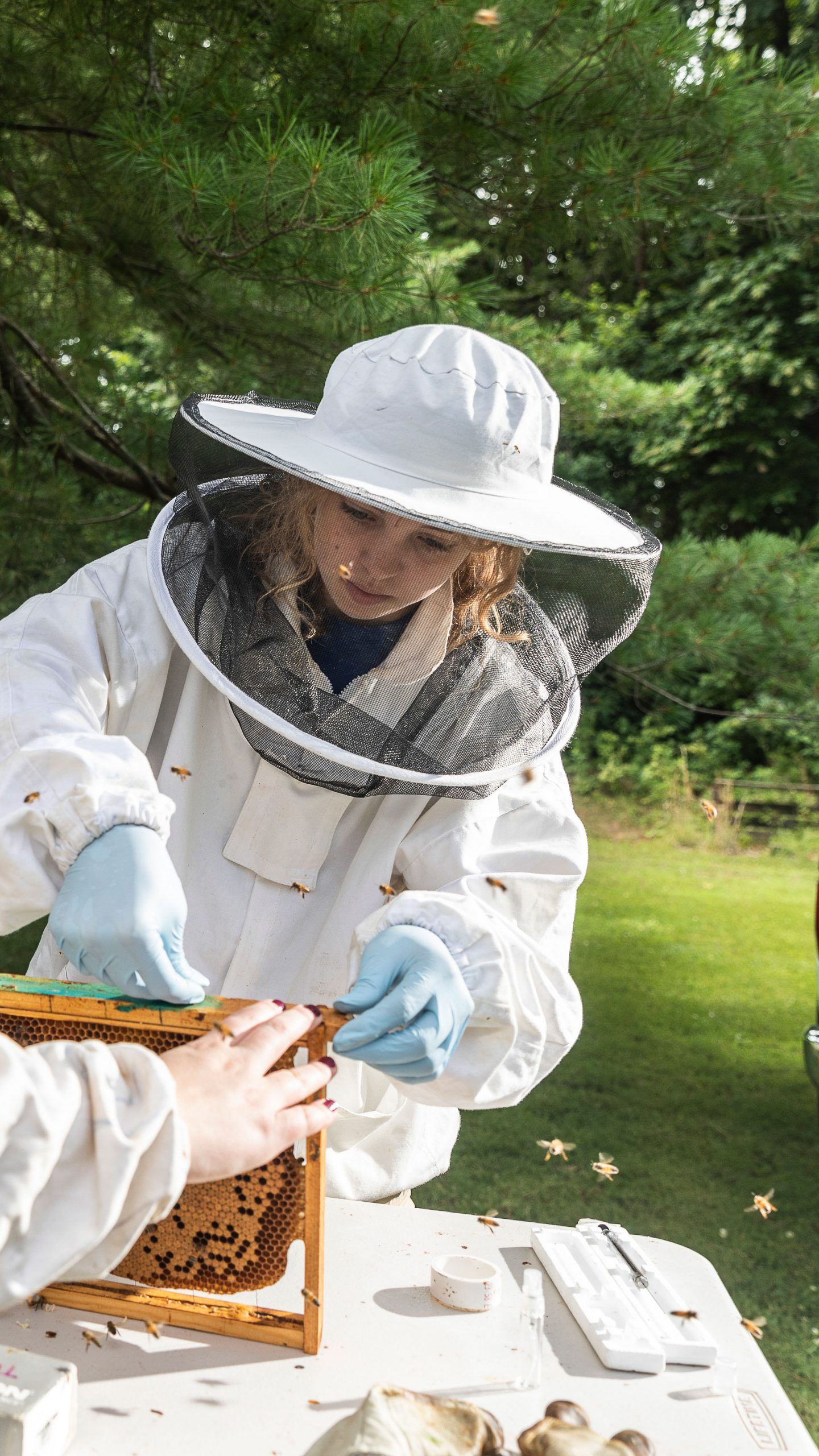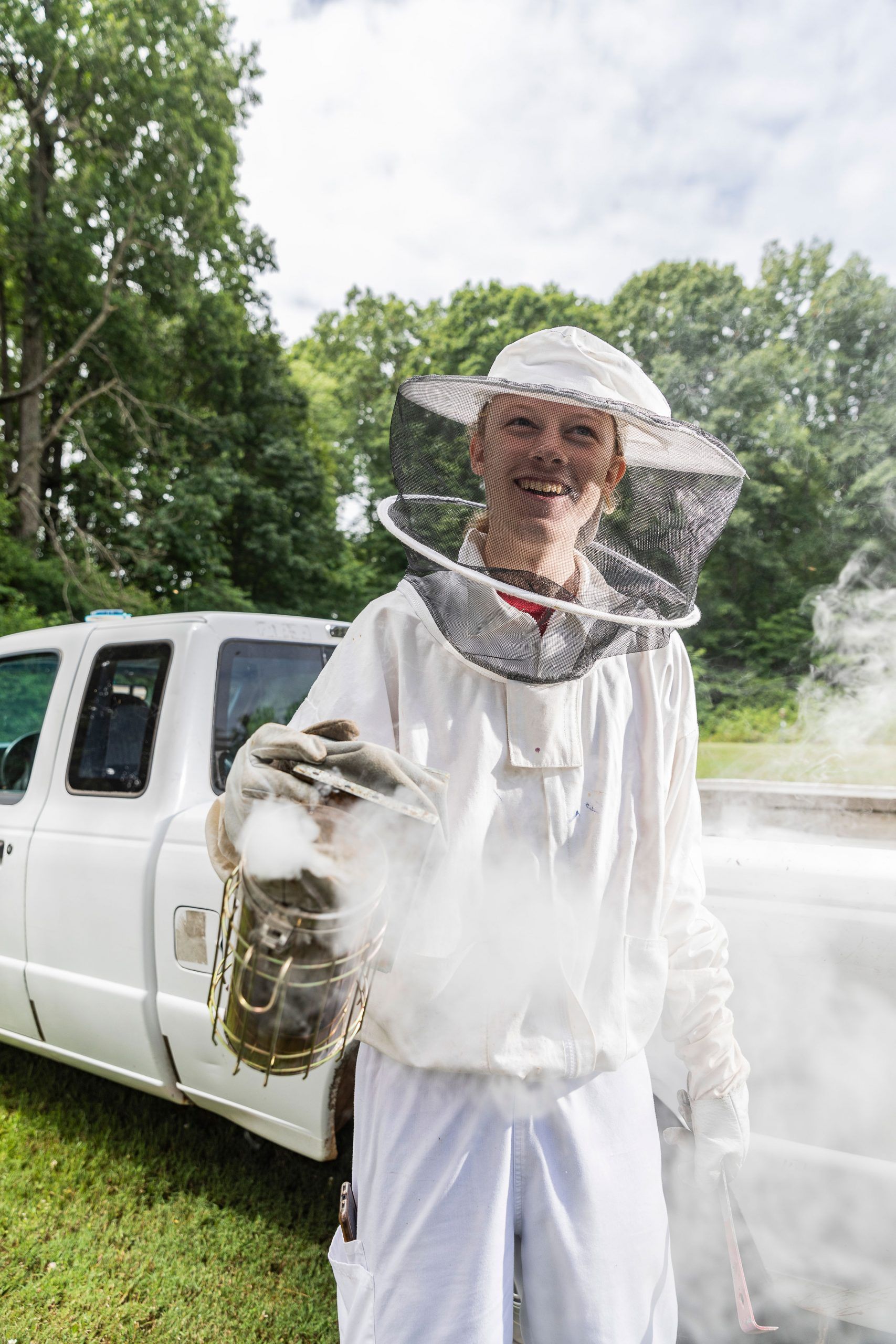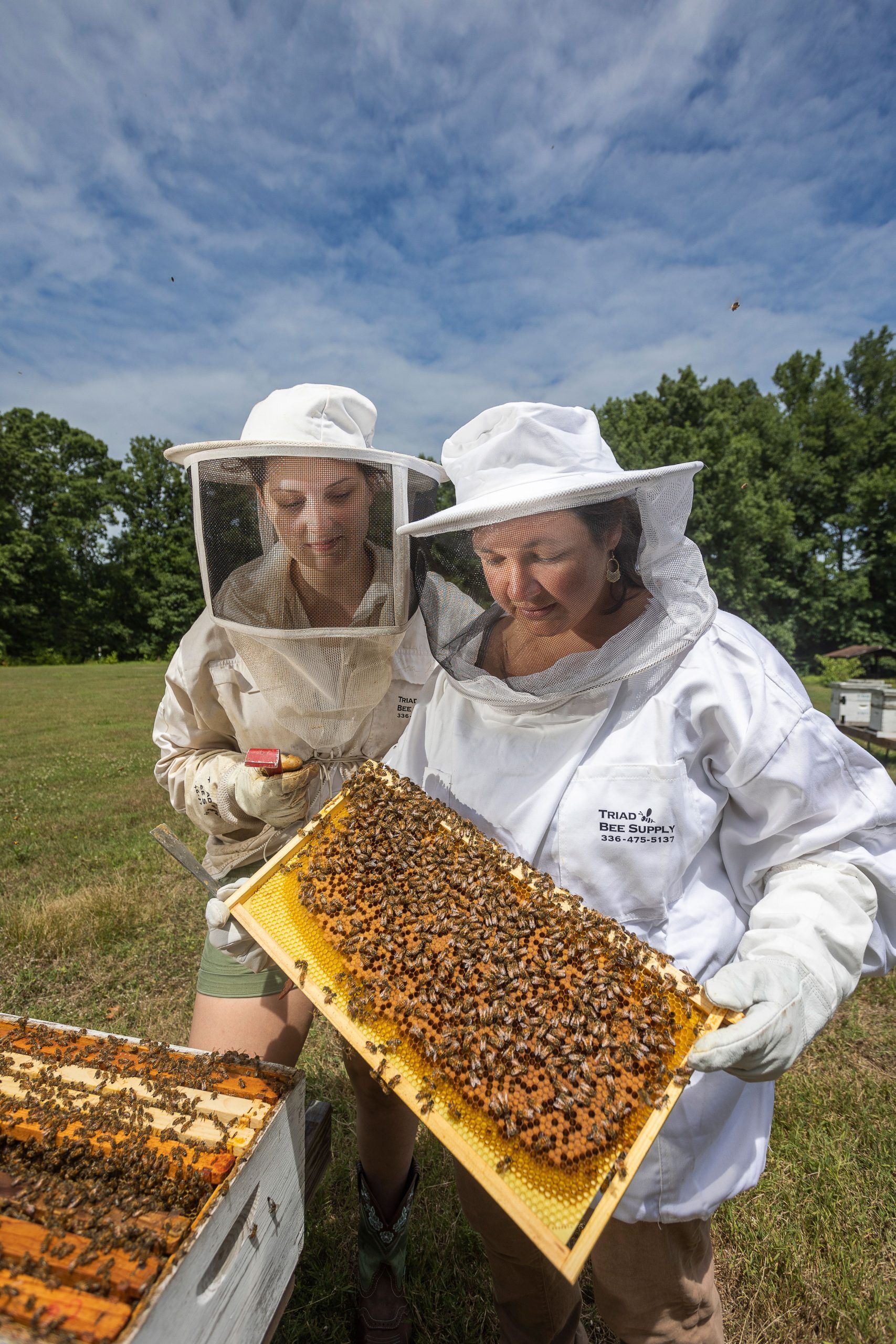BEE BUSINESS
From a grad school discovery to launching a company, two UNCG alums take a big swing for bees
BEE BUSINESS
From a grad school discovery to launching a company, two UNCG alums take a big swing for bees
It’s not easy being a baby bee.
The hive doesn’t revolve around the developing insect. Instead, the brood – consisting of the eggs, larvae, and pupae – are part of a larger whole, whose health holds higher stock than any one individual.
Diseases and mites are the hive’s most significant threats, including the famed Varroa destructor mite. Beekeepers are losing up to 40% of their colonies every year due to these threats, says Dr. Kaira (KAY-rah) Wagoner, a research scientist at UNCG.
But some honey bees have sniffed out a curious method to reduce disease in their hives.
These specialized adults can smell when a developing bee is unhealthy and will uncap its cell, so the unhealthy brood can be inspected and, if found sick enough, removed from the hive. Scientists call the pheromone-driven process “hygienic behavior.”
STORY HIGHLIGHTS
Some people dream about being scientists. Others aspire to be business owners. To use her findings to do good, Dr. Kaira Wagoner has decided to be both, launching a startup with UNCG alum Phoebe Snyder.
Story highlights
Some people dream about being scientists. Others aspire to be business owners. To use her findings to do good, Dr. Kaira Wagoner has decided to be both, launching a startup with UNCG alum Phoebe Snyder.
“Making the sacrifice of an individual unhealthy bee improves the health of the colony,” Wagoner says. “We think of a honeybee colony as a superorganism. The focus is on the colony as a whole.”
During her doctoral studies at UNCG, Wagoner became curious about how bees communicate to perform this hygienic behavior. She discovered that elevated levels of certain compounds on sick baby bees serve as a signal to adults.
“Specific cuticular hydrocarbons were slightly elevated if the honeybee pupae was unhealthy,” she says. “Bees are so sensitive in their ability to smell that they can detect these tiny changes.”
Wagoner had answered her question, but she wasn’t done.
“I love to take science and turn it into something that’s really applied and useful,” she explains. “I think it’s important to not only communicate science, but to use it to do good.”
Part of the Hive
Researchers investigate bee child-rearing practices, gut health, and more to help hives – and humans – thrive.
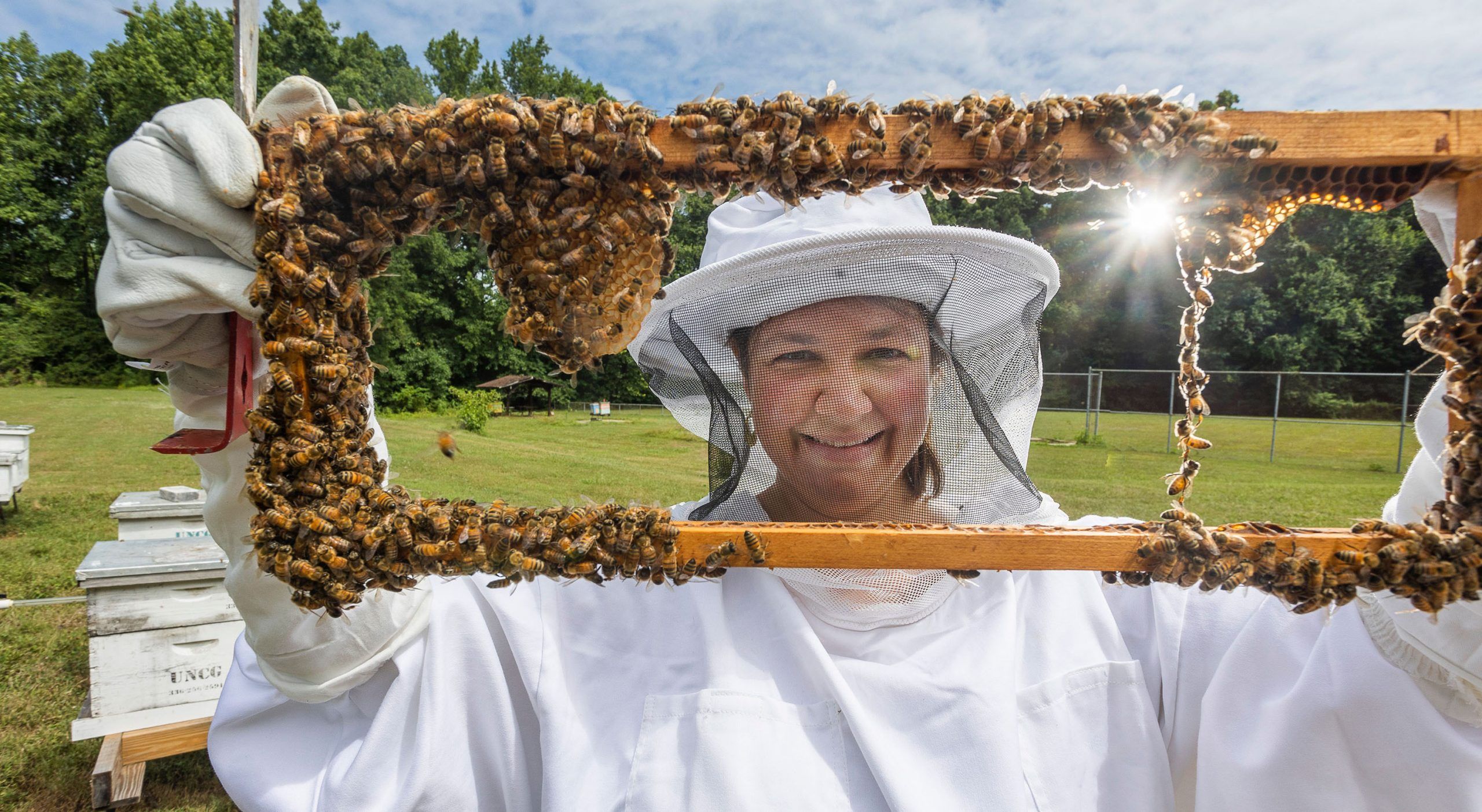
After completing a UNCG masters and doctorate, Wagoner is continuing her impactful bee research with the university, first as a postdoc and, now, as a research scientist.
“I love to take science and turn it into something that’s really applied and useful. I think it’s important to not only communicate science, but to use it to do good.”
After completing a UNCG masters and doctorate, Wagoner is continuing her impactful bee research with the university, first as a postdoc and, now, as a research scientist.
Cutting-edge science in a spray bottle
Wagoner began investigating how her findings could practically improve beekeeping.
Beekeepers, she knew, used a variety of tactics to identify and selectively breed for bees that had a knack for hygienic behavior. One of the most common was freezing brood with liquid nitrogen and testing how much removal of the dead brood happens over 24 hours.
But Wagoner’s compounds offered the possibility of identifying more sensitive hygienic bees with less harm to the brood.
Chemists at UC Riverside and UNCG helped Wagoner synthesize her target compounds in the lab. Then she and her collaborators put a mix of those compounds to the test.
In Wagoner’s assay, pheromones are sprayed on a section of capped brood, which is then placed back in the hive. If the bees can sense the elevated compounds, they will uncap the brood cell to inspect it. After two hours, the researchers measure the percentage of uncapping in the treated area.
Since the hive will eventually recap healthy brood, the assay leaves them unharmed.
Using this test on multiple colonies, the researchers gave each colony a hygienic score.
“Higher scoring hives,” Wagoner explains, “have fewer mites, lower virus loads, and can be bred to produce bees that are less reliant on beekeeper interventions to survive.”
The new test, the researchers found, was not just less detrimental to the brood – it was also more accurate.
The science solidified a business product: a spray bottle containing their compounds, for beekeepers to identify their most hygienic bees for breeding. It also resulted in three patents for Wagoner and her mentor at the time, Dr. Olav Rueppell.
From a lab lunch to launching a business
As a postdoctoral fellow, Wagoner was exploring how to bring her product to market. Unexpectedly, a lab lunch led to her next big step.
Her labmate, masters student Phoebe Snyder, had an entrepreneurial upbringing. “I grew up observing my mother launching multiple businesses,” Snyder says. “I knew I eventually wanted to do that too.” As Wagoner explained her ideas over lunch, the two began brainstorming – jotting notes down on a napkin.
“I still have the napkin on my fridge. It’s a little sentimental,” Snyder says with an easy laugh. “That was one of those moments where I realized this was going to propel my career in another direction.”
Wagoner and Snyder have come a long way since these napkin musings.
They reached out to LaunchUNCG, the university’s innovation and entrepreneurship arm, to gain insight to make their idea a reality.
Snyder and Wagoner (photos 1 & 4) in the field with summer interns, UNCG biology ’22 alums Natalie Sabiston (photo 2) and Zachary Bunch (photo 3).
“The office guided us through the process,” Wagoner says. “We were scientists with an invention, and we became entrepreneurs with an up-and-coming product.”
They went through LaunchUNCG and NC A&T’s regional NSF iCORPS program – a sort of bootcamp for researchers seeking to launch their innovations in the marketplace. Their success there got them into the national iCORPS program.
In those programs, they interviewed about 200 beekeepers. “This process gave us a laser-focused kind of view of what the needs actually are and such a better understanding of the industry,” says Snyder.
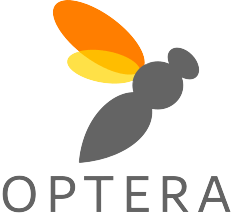
Wagoner and Synder launched their company Optera in December 2020. “The name is the suffix for many different orders of flying insects, like Hymenoptera, the order that contains bees,” say Snyder. “It means wings.”
Wagoner and Synder launched their company Optera in December 2020. “The name is the suffix for many different orders of flying insects, like Hymenoptera, the order that contains bees,” say Snyder. “It means wings.”
The duo also acquired funding. “Kaira is a beast at grant writing,” says Snyder. The research scientist has received 13 out of the 15 grants she’s applied for – including an NSF Small Business Technology Transfer Grant, or STTR, of over $250,000.
“Another important piece was a matching NC Department of Commerce grant,” explains Wagoner, “That One North Carolina Small Business Program funding has been critical, ensuring we aren’t missing a field season as we apply for phase two funding from the NSF.”
They’re also bringing in additional expertise through worldwide partnerships.
“We have collaborators conducting independent field tests of the compounds in Vermont, Canada, Belgium, the Netherlands, and Australia,” says Wagoner. “We’re also working with Bee Informed Partnership, which is a nonprofit organization helping U.S. beekeepers.”
As the partners work to refine their product and apply for phase two funding, they have big goals and a waiting list of beekeepers and business collaborators already eyeing their product. ”People are excited about it.”
During each step, they keep the big picture in mind.
“Our goal is to help make lives better for bees, beekeepers, and consumers of honeybee products,” Wagoner says.
“Bees are critical for 30% of the foods we eat, so we’re hoping to help improve food security and pollination services on a global scale. That’s a big thing, but our ambition is grounded in good science. We expect big results, from flower, to farmer, to fork.”
